At a gathering that blended science, storytelling, and soul, experts and everyday Nigerians confronted the weight of trauma and the hope of healing, turning silence into strength at the third edition of The Mental Health Conference (TMHC) in Lagos.
By Bunmi Yekini
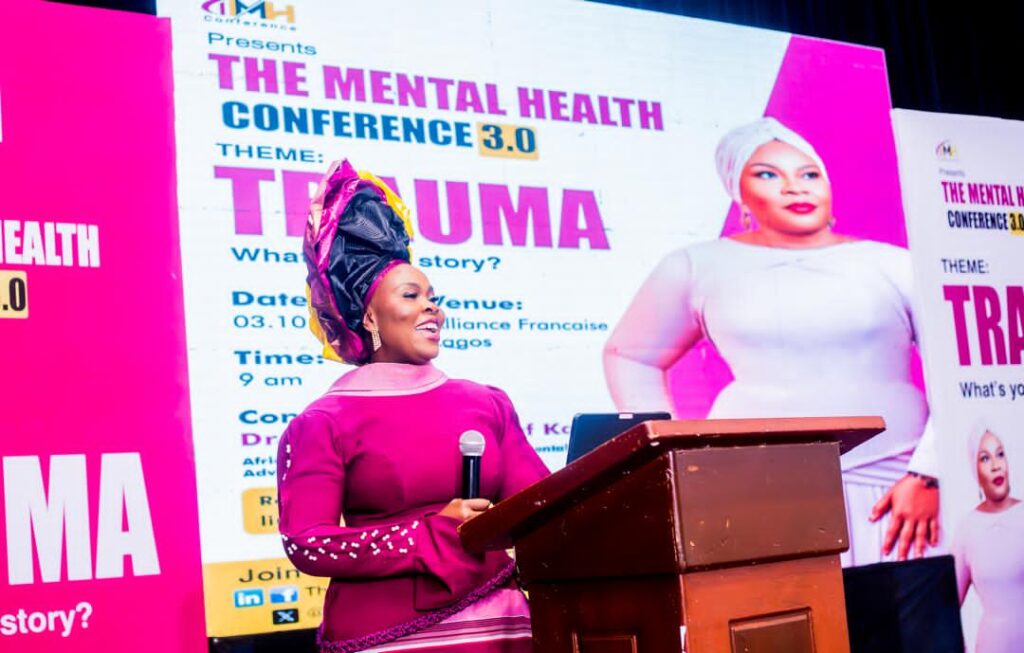
The third edition of The Mental Health Conference (TMHC) drew leaders from medicine, law, business, media, and the arts to Alliance Française, Ikoyi, for a powerful day of conversation on trauma, healing, and workplace wellbeing. Convened by Dr. Maymunah Yusuf Kadiri, popularly known as The Celebrity Shrink, the conference, themed “Trauma: What’s Your Story?”, explored how personal experiences, institutional practices, and public policy intersect to shape mental health outcomes in Nigeria.
Unlike most conferences that begin with charts and slides, Dr. Maymunah began with heart.
“We are here,” she declared, “to turn our pain into power, our silence into story, and our stories into light.”
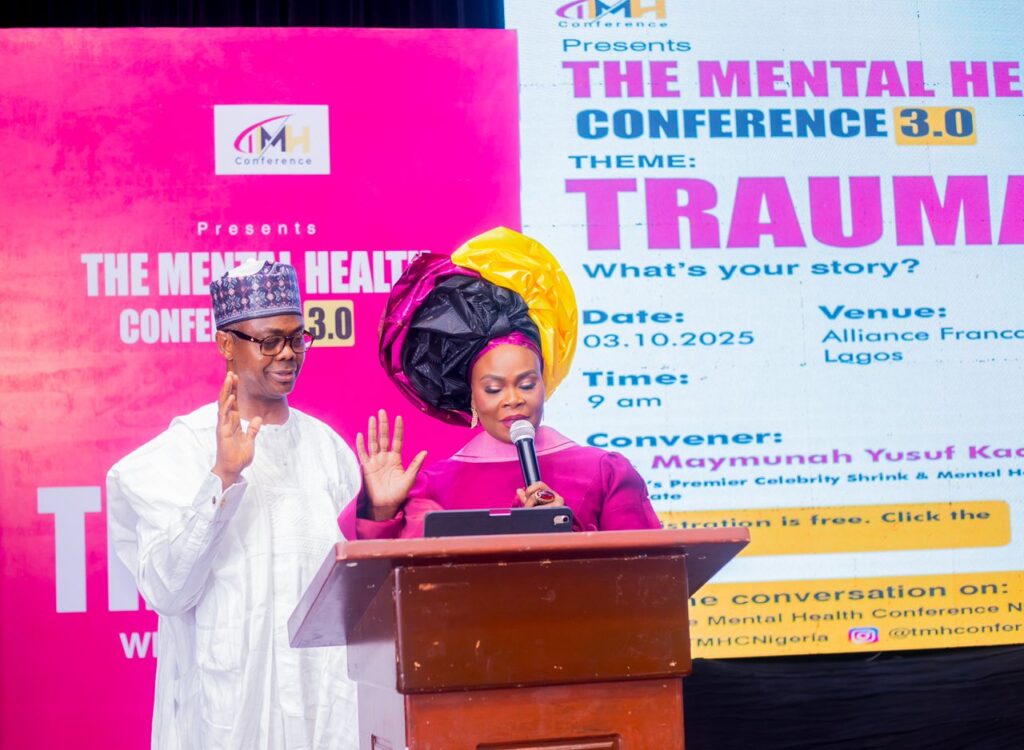
Her voice carried both calm and conviction as she urged participants to see trauma not as weakness, but as “wisdom waiting to be shared.” She described the journey of TMHC, from its debut, “Unveiling the Mind Behind the Mask,” to “Identity: Who Are You?”, as a movement toward deeper self-discovery.
“Trauma,” she said, “is not just what happened to you. It’s what keeps happening inside you, long after the world thinks you should be fine.”
Dr. May’s message was clear and redemptive: “Your story may be stained, but it is not spoiled. Your pain is part of your past, not your permanent address.”
She called on Nigerians to see their trauma not as a tomb but as soil, “dark, messy, full of decay, but also where seeds take root.”
“This conference,” she told the audience, “is not just an event, it is a revolution of remembrance. A sanctuary for stories. A battlefield for healing. And a birthplace of hope.”
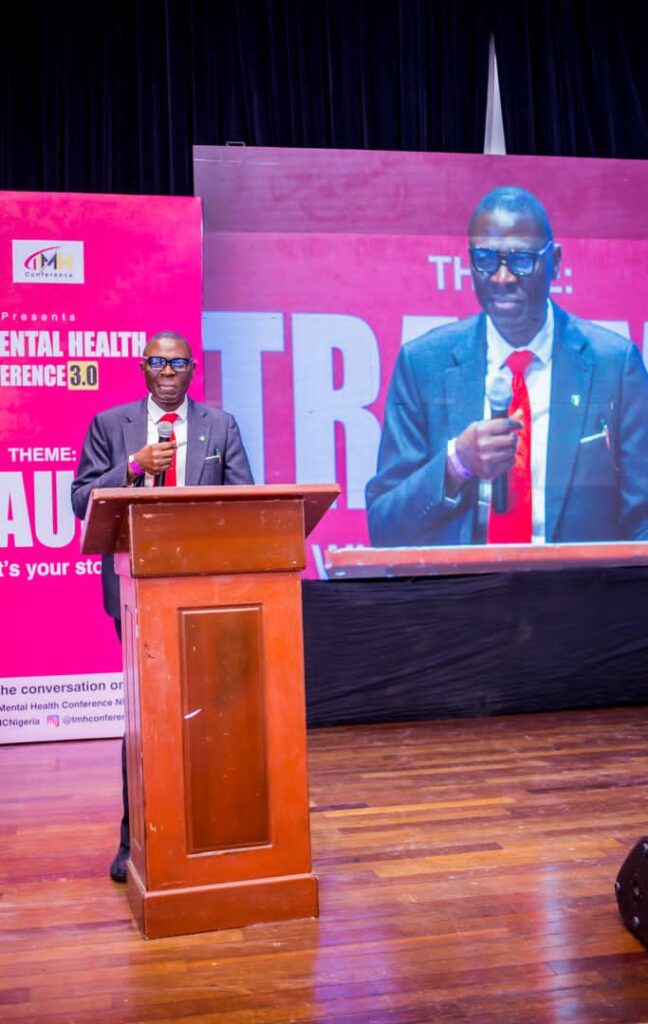
Representing the Minister of State for Health, Dr. Iziaq Adekunle Salako, keynote speaker Dr. Olugbenga Owoeye, Medical Director and Consultant Neuropsychiatrist, unveiled a policy roadmap for trauma care and mental health inclusion.
“We are putting systems in place to ensure trauma care and mental health inclusion become national priorities,” Dr. Owoeye said. He announced plans for National Trauma Centres and psychosocial intervention units across states, calling trauma care “a public-health and national-development imperative.”
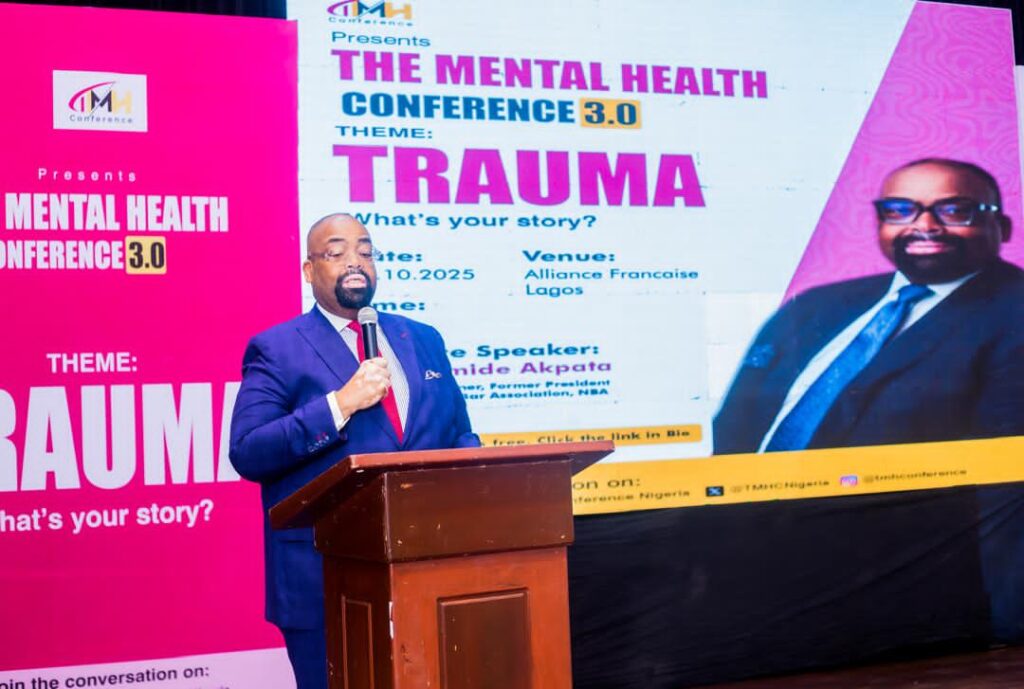
In his own keynote, former Nigerian Bar Association President, Olumide Akpata, examined trauma through the justice lens, linking it to Nigeria’s social challenges.
“Insecurity, unemployment, inflation, these are not just economic crises. They are psychological wounds,” he said. “True justice must be restorative, not merely punitive. A nation is only as successful as the collective mental wellness of its citizens.”
Journalist Stephanie Busari offered a moving reflection on grief and resilience.
“Grief doesn’t wait for permission, neither does trauma check your schedule,” she said. “We live in a world that expects you to find a lesson and move on, but compound trauma doesn’t work that way.”
Busari credited “the love of God, good people, and the honesty of admitting you’re not okay” for her recovery. “We can all choose what to do with our pain,” she added. “We can let it destroy us, or make us more human.”
In a session on Adverse Childhood Experiences (ACEs), Dr. Olasimbo Davidson reminded attendees: “You can’t heal what you’re not even aware of.”
Panelists including Dr. Babi Awosika, Dr. Sylvanus Jatto, and Prof. Rosemary Ogu, moderated by Mrs. Adeola Kingsley-James, explored ‘Mental Health at the Heart of Work and Society’, calling for trauma-informed workplace policies and employee assistance programs.
“The time has come,” one panelist noted, “for employers to move beyond token wellness offerings toward systemic change that embeds psychological safety into everyday work.”
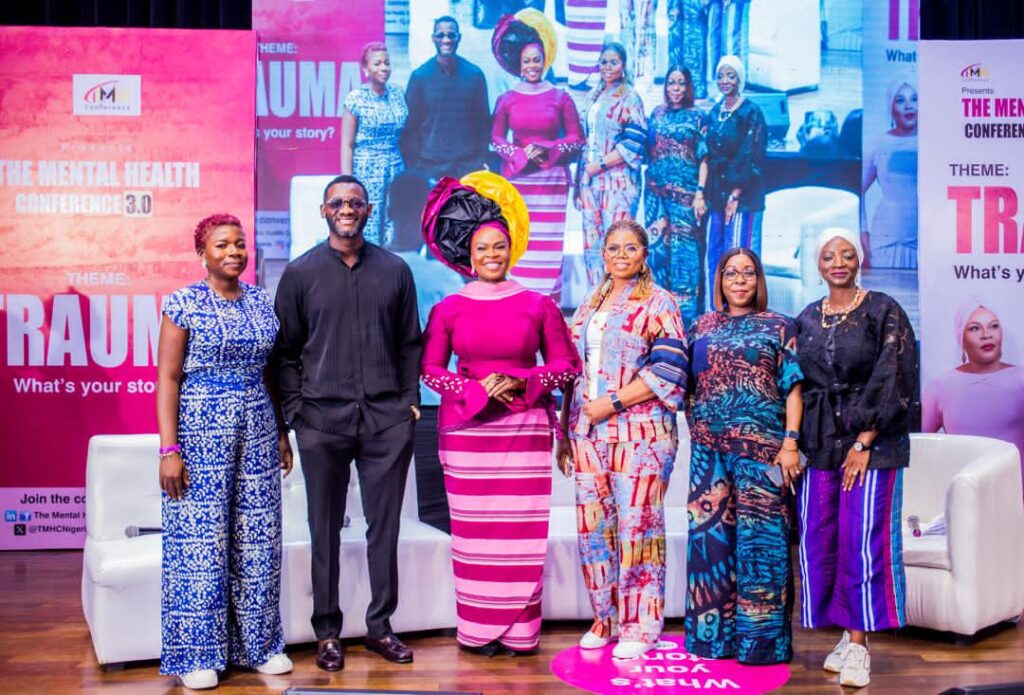
Another panel, moderated by Mrs. Saudat Salami, delved into ‘The Wellness Equation: Mind, Body, Medicine & Finance’. Speakers Temi Dalley, Foluso Ogunwale, Oghenetega Gbadagri, and Josephine Ehimen stressed that financial stress remains a core driver of poor mental health and urged for “holistic wellness strategies” that integrate physical, emotional, and financial wellbeing.
The day ended not in silence, but in song. Legendary performer Yinka Davies lifted the room with a soulful performance that echoed the conference’s message, that art, too, can heal.
In her closing remarks, Dr. Maymunah looked toward the future:
“We’ve begun a necessary conversation, one that can no longer be silenced. Next year, TMHC 4.0 will continue this journey into collective care, healing, and mental wellbeing.”
Her final charge lingered in the air like a prayer:
“Healing begins when we tell our stories and stop letting silence hold us hostage. The world doesn’t need perfect people. It needs powerful people, people who have walked through pain, and still choose love.”
